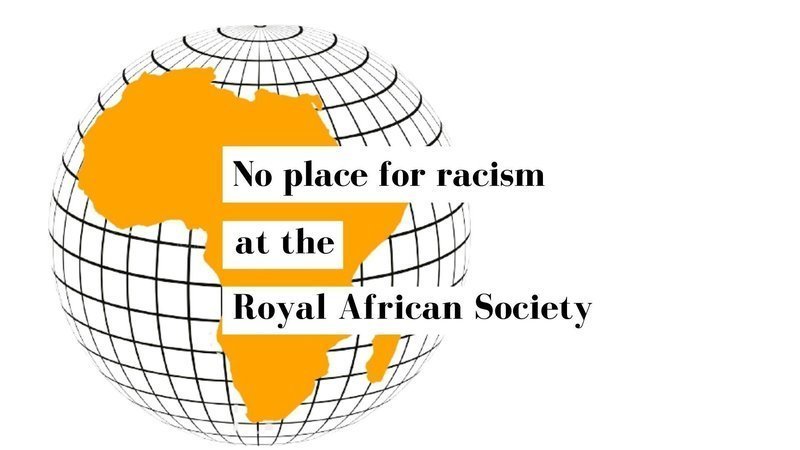International
Will the UK ever part ways with Genocide fugitives?

The Government of UK remains silent on prosecuting genocide fugitives on its soil
For more than a
decade, Rwanda’s requests for the United Kingdom to either extradite or try in
its own courts, alleged Rwandan war criminals who
participated in the genocide against the Tutsi in 1994 have fallen on deaf
ears.
About fifteen
years ago, Rwanda located five key genocide suspects on UK territory. They are
Dr Vincent Bajinya, a medical doctor who headed the National Population Office
(ONAPO) during the Genocide, former mayors - Célestin Ugirashebuja, Charles
Munyaneza, Emmanuel Nteziryayo and Célestin Mutabaruka, a pastor.
Bajinya was the
coordinator of Interahamwe militia in Kigali where he often organised meetings,
in his home, where plans to kill the Tutsi were hatched. Mutabaruka, presently a Pentecostal preacher
in the UK, headed Crête Zaïre-Nil (CZN), a forest management organisation in
Musebeya, southern Rwanda, during the Genocide. He, among other accusations,
led a gang of killers that murdered people on Muyira Hill, in Bisesero, in May
1994.
Munyaneza,
Nteziryayo and Ugirashebuja were Burgomasters, or mayors, in the communes of
Kinyamakara, Mudasomwa and Kigoma, respectively - in southern Rwanda - during
the Genocide. They all commanded Interahamwe to kill thousands of Tutsi in
their respective communes.
Despite Kigali's
readiness to support efforts by UK authorities to bring the five to justice, a
decision is still pending on the extradition cases. Courts in the UK have many
a time ruled against their extradition to Rwanda yet the Genocide Convention of
1948 requires countries to extradite or try cases of this nature.
As Andrew
Mitchell, MP for Sutton Coldfield, noted in April 2019, the souls of those
murdered in the Genocide cry out for justice but from Britain, justice has at
the least been delayed, and at worst denied. At the time, Mitchell also
recalled how the Nuremberg trials, military tribunals held by the allied forces
under international law and the laws of war after World War II, commenced just
seven months after WWII and were concluded within 10 months.
Mitchell told the
UK Parliament that while Britain makes no move to try or extradite the mass
murderers, the British taxpayer forked out more than three million Pounds in
legal costs for the five men who are living on benefits including on housing
benefit.
Members of the UK House of Lords on April 22 announced the formation of a group that will push their government to bring the five suspects to justice.
Lord Stuart
Polak, a British Member of Parliament told a session in the House of Lords that
the All Party Parliamentary Group (APPG) on war crimes, was formed to look into
matters relating to the presence of alleged Rwandan war criminals in the UK and
the prosecution of those who participated in the genocide against the Tutsi in
1994.
The group will be
chaired by Conservative MP, Mitchell, and Labour life peer Lord Mendelsohn,
among others. Lord Polak wants the matter of genocide fugitives in his country to
be dealt with before the Commonwealth Heads of Government Meeting (CHOGM),
scheduled to be held in Rwanda this June. Governance and Rule of Law is one of
the key topics during the upcoming Commonwealth leaders' meeting.
He and others
have appealed to the Houses of Parliament and the UK Government to “lead by
example”, in the context of upholding human rights and rule of law - part of
the Commonwealth shared values.
“If we talk about
good governance and human rights my lords, we should lead by example.” During a
virtual discussion with APPG members on April 26, Rwanda's Minister of Justice,
Johnston Busingye, said Kigali is humbled that this group was formed to look
into the matter.
In the aftermath
of the genocide one key thing to do was to ensure justice for the victims by
bringing to justice those suspected of involvement, Busingye said.
He added:
"Given the UK’s refusal to be a safe haven for Nazi war criminals that
culminated in the passing of the war crimes Acts in 1990, and the subsequent
action on individual suspects, the government of Rwanda made every effort to
secure the extradition of the five fugitives. It was fruitless."In 2015
and 2017 a British District Court and the High Court ruled that there was
compelling evidence of the involvement of the five in the genocide.
"But none
could be extradited to Rwanda because that would breach their human
rights." "The High Court didn’t rule on what could be done. For the five fugitives the way forward was
clear as day; British justice had afforded them a securer safe haven on a blank
cheque."
As British justice doubted the quality of Rwanda’s justice, Busingye said, the ICTR and countries including the United States, Canada, Belgium, Norway, Denmark, Sweden ruled that Rwanda’s justice met international standards and extradited fugitives to face justice.
"All
extraditees have had their cases in Rwanda’s International Crimes Chamber of
the High Court. Most have been monitored
by the extraditing or deporting countries."
Having failed
with extradition Rwanda, in 2017, requested for in country trials. A few visits by the UK's Metropolitan Police
happened to deal with this request including the last visit in March 2020. Kigali
agreed to hand over the investigation files of the five fugitives and did so on
January 25, 2019 through the British High Commission in Kigali.
"The way we
understand this process, we are waiting for more visits and more requests and
our compliance. It seems that the one thing known about this rule of law and
accountability process is that we will not be seeing the start of the trials of
these men anytime soon."
All we seek is that due process is followed
Rwanda does not
seek revenge and will not, the minister noted.
Rwanda does not prejudge the five suspects, he added, explaining that
whether they are innocent or guilty will be decided by courts. "All we seek is that due process is
followed and that justice, so far delayed, does not end up denied."
The minister said
the UK has projected herself, and has become known, and trusted, as that
country where the rule of law and accountability are enshrined principles.
It is known, he
added, as that country which resolved long ago that suspected war criminals or
genocidal murderers would not be permitted, under whatever pretext, to evade
justice and remain free and unperturbed on British territory. "The matter of the five genocide
suspects needs to show us that this is
the UK for real. It's 15 years of attempts to bring the five to justice. We tried extradition (but) it was refused, we
agreed.
"We
requested in country trials, it was accepted.
We were asked to provide support; we needless to say, accepted and
did. That was four years ago. We are
still watching and waiting, waiting for the one signal that will show the
genocide victims, in their lifetime, that finally there is commitment to bring
these fugitives to justice."
Observers point
out that UK courts claiming that the five suspects could not be extradited to
Rwanda because their human rights would be violated is criminal double
standards especially since the crime in question is a crime against humanity.
Doubting Rwanda's
justice is also seen as merely discrediting the Rwandan government and its
institutions yet the two countries have cooperation agreements in various
areas. Many other countries, including the US and the Netherlands have
extradited genocide fugitives to Rwanda and people still wonder why the UK
cannot. Rwanda also has foreign prisoners serving their sentences in Rwanda, a
sign of the confidence in the country's international standards regarding
prisoners rights.
Genocide denial, UK’s stance on genocide against the
Tutsi
Busingye also
raised two related issues; genocide denial and the UK’s stance on the naming of
the genocide against the Tutsi. Genocide denial, he said, is fueled by an array
of people with a vested interest. Genocide
suspects, he added, are probably the most interested individuals in denial and
revision.
The UK’s failure
to act on the five fugitives, Busingye said, should also "be seen from
this unfortunate angle; that by default it amounts to tacitly enabling genocide
denial." The UK’s stance on not naming the genocide against the Tutsi as
such, as it is, as it should be is incorrect and should be corrected, he said.
"The
genocide against the Tutsi targeted the Tutsi as a group for extermination
because they belonged to that group; to miss this point is to miss the point
about the genocide. "It is our hope
that the UK will, sooner rather than later, address this matter of moral and
legal clarity."
Last May, despite
the fact that the United Nations passed a resolution setting April 7 as the
International Day of Reflection on the 1994 Genocide against the Tutsi in
Rwanda, the US and the UK raised concerns and sent their Positions of
Explanations (PoE) to the UN over the words used in the text.
The UK said:
“Whilst we did not break silence on the text, we would like to express some
reservations on the text. We disagree with the framing of the genocide purely
as the ‘1994 Genocide against the Tutsi’”. A letter from the UK chargé
d’affaires, Jonathan Allen, objected to the “framing of the genocide purely as
the 1994 genocide against the Tutsi”, seemingly hinting at two genocides.
In a related
OpEd, Linda Melvern, a British investigative journalist and author of A People
Betrayed: The Role of the West in Rwanda's Genocide (2000), and Conspiracy to
Murder: The Rwanda Genocide (2004), among other books, called the two countries
out.
Highlighting how
the UK is distorting historical facts, she noted how one sentence avoided the
word genocide: “The UK remembers the tragic events in April 1994 and is firmly
committed to ensuring that such atrocities never happen again.”
While both
pointed to other victims, she noted, these people were not killed in a
genocide. "Only one group was the target of extermination. This was the
case when past genocides in history were commemorated."



